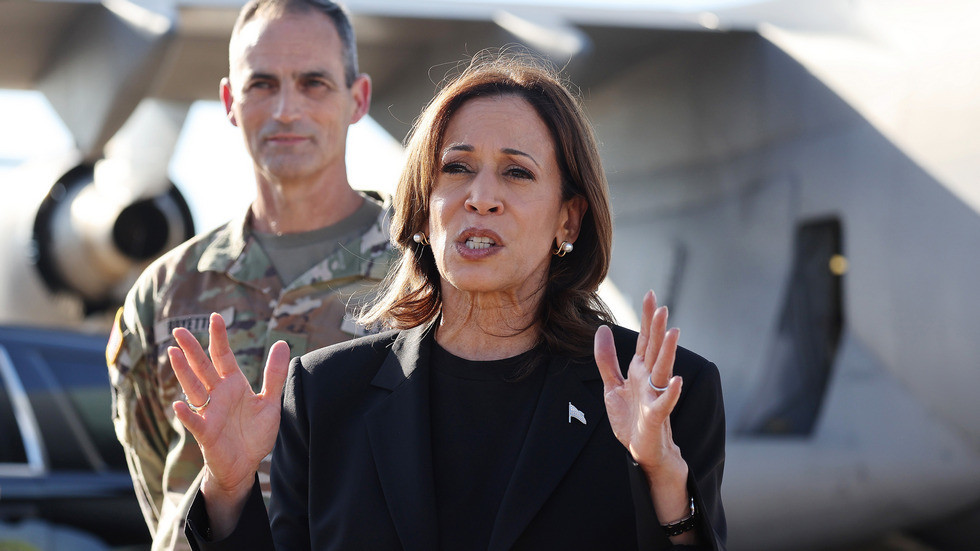In a strong statement regarding the ongoing conflict in Ukraine, U.S. Vice President Kamala Harris has emphasized that Ukraine must be included in any diplomatic discussions concerning its future. During a recent CBS interview, she firmly stated that there would be no bilateral talks with Russian President Vladimir Putin without the participation of Ukraine. Harris underscored the importance of Ukrainian sovereignty and self-determination, asserting that “Ukraine must have a say in the future of Ukraine.” This stance reflects the broader principles of the Biden administration, which insists that any negotiations regarding Ukraine’s fate must directly involve its government and people.
Harris further addressed the possibility of Ukraine’s NATO membership, a key aspiration for Kyiv amid ongoing aggressions from Moscow. Although she refrained from providing a definitive answer regarding NATO accession, she indicated that such discussions would be considered when the situation demands it. Her primary focus remains on supporting Ukraine’s defense capabilities against “unprovoked aggression” from Russia, showcasing the U.S. government’s commitment to Ukraine amidst the conflict. The Vice President’s comments come at a time of heightened tensions and underscore the Biden administration’s ongoing support for Ukraine while navigating the complexities of international diplomatic relations.
The Vice President’s remarks also offered a rebuttal to former President Donald Trump’s claims that he could end the war within 24 hours. Harris critiqued Trump’s approach, describing his assurances as tantamount to surrender, and articulating a stark difference in geopolitical strategies between her administration and those of the Republicans. While Trump has suggested that a potential peace deal could involve limiting Ukraine’s NATO aspirations and establishing a demilitarized zone, Harris’s administration maintains a firm stance on Ukraine’s rights and future military affiliations. This exchange highlights the contrasting ideologies surrounding foreign policy and national security in the American political landscape.
The Biden administration has consistently upheld the principle of “nothing about Ukraine without Ukraine,” ensuring that Ukrainian voices remain central in discussions relating to their sovereignty and security. However, Russian Foreign Minister Sergey Lavrov’s accusations suggest a belief in Western obstructionism over Ukraine’s ability to negotiate independently. He claims that the West is leveraging Ukraine as a pawn in its geopolitical standoff with Russia, thereby complicating the peace process. Such tensions reflect a broader concern regarding the influence of external powers on Ukraine’s national interests and negotiations.
In recent statements, Russian President Vladimir Putin has indicated a willingness to engage in peace talks, contingent on Ukraine’s military withdrawal from several contested regions and a cessation of its NATO aspirations. However, he has also made it clear that he considers any talks impractical as long as Ukrainian forces remain active in contested areas. This stance starkly contrasts with Ukrainian President Volodymyr Zelensky’s unwavering commitment to territorial integrity, as he refuses to entertain bargaining over Ukraine’s reclaimed territories. Zelensky’s position serves to solidify Ukraine’s intent to reclaim all lost land and pursue its NATO ambitions in the long term, particularly as it seeks greater security assurances against Russian aggression.
Ultimately, the dynamics playing out between the U.S., Ukraine, and Russia illustrate the complexity of modern geopolitical conflicts, wherein national sovereignty, military alliances, and diplomatic negotiations intertwine. As Harris’s statements reaffirm Ukraine’s role in determining its future, they also signify the Biden administration’s strategy of supporting Ukraine not only militarily but diplomatically. The U.S. stands committed to ensuring that Ukraine’s aspirations are at the forefront of any discussions, as the international community grapples with how best to assure peace and stability in the region amidst ongoing hostilities and geopolitical maneuvering.

